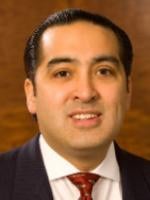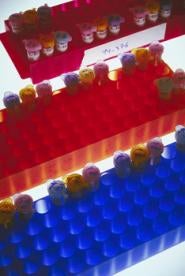On March 29, 2010, Judge Sweet of the United States District Court for the Southern District of New York determined that isolated human genes and the comparison of their sequences are not patentable under the laws of the United States. Association for Molecular Pathology v. U.S. Patent and Trademark Office, --- F.Supp.2d ----, 2010 WL 1233416 (S.D.N.Y. 2010). Judge Sweet’s ruling invalidated fifteen claims in seven patents covering isolated DNA sequences and methods for comparing certain gene sequences to identify the presence of mutations correlating with a predisposition to breast or ovarian cancer. This decision, if it withstands appellate review, would deal a fatal blow to the vast majority of genetic patents and significantly stifle research into the role genetics plays in human illness.
Myriad Genetics, one of the named defendants, tests samples from a patient’s DNA to isolate the Breast Cancer Susceptibility Gene 1 (BRCA1) and the Breast Cancer Susceptibility Gene 2 (BRCA2) on a fee for service basis. The patient’s BRCA1 and BRCA2 gene sequence provides information as to whether the patient has certain genetic mutations that evidence an increased risk for developing breast or ovarian cancer. If the patient carries a dangerous BRCA1 or BRCA2 mutation, regular cancer screening is well advised. Although some doctors suggest prophylactic mastectomy or prescription drugs such as Tamoxifen or Raloxifene to prevent breast cancer in patients with a dangerous BRCA1 or BRCA2 mutation, the medical community remains divided on the advisability of surgery or prescription drugs as a preventative measure. Nevertheless, Myriad Genetics does not have this testing exclusivity forever because it chose to patent this technology.
Patents provide a period of exclusivity in exchange for teaching the public about how to make and use an invention. At present, the period of exclusivity is generally twenty years from the date the earliest patent application was filed. At the end of the patent term, anyone is free to use the knowledge of the patent. But even during the term of a patent, Congress has provided a safe harbor that inhibits patent infringement liability for non-commercial experimentation that uses patented technology.
Obtaining a patent is predicated upon having an invention that is new and not obvious to artisans knowledgeable in the field of the invention. In this way, patents promote the progress of utilitarian knowledge and incentivize investors to fund research in exchange for a commercial, limited monopoly. But patents are not issued for certain inventions, namely mental processes, abstract ideas, and laws or products of nature. And it is this exclusion from patent protection of certain subject matter that led the plaintiffs to seek a finding of invalidity of the patents Myriad Genetics has licensed for genetic cancer testing.
By way of background, one of the plaintiffs in this case is Lisbeth Ceriani of Massachussetts. Ms. Ceriani was diagnosed with breast cancer and underwent a double mastectomy. But Ms. Ceriani was also concerned about her ovarian cancer risk and wanted an ovarian cancer genetic test performed to discern her potential risk. Because the genetic test was patented, and there was only one commercial licensee, the test and its cost were regulated by a single commercial licensee – Myriad Genetics. When Ms. Ceriani was informed that her insurance did not cover the genetic test, she along with several other plaintiffs including the American Civil Liberties Union (ACLU) sued Myriad Genetics and the patent owners claiming that the patents covering the tests were invalid on the basis that isolated human genes and the comparison of their sequences were not patentable under the laws of the United States. Specifically, the plaintiffs alleged that the purified DNA was not markedly different from the natural DNA, which is a product of nature and not patentable. And plaintiffs also alleged that the comparison of isolated DNA was nothing more than a mental process, which by itself is not patentable. Yet neither Ms. Ceriani nor the ACLU considered the investment required to bring about the knowledge upon which the genetic test is predicated, nor what an adverse decision would mean for the biotechnology industry in the United States.
Myriad Genetics, the former owner and current exclusive licensee of the patents at issue, spent years and millions of dollars in research to identify and isolate two particular mutated genes linked to breast cancer, BRCA1 and BRCA2. And even Judge Sweet conceded in his ruling that the isolation and identification of the BRCA1/2 genes “required considerable effort” and “ingenuity in overcoming technical obstacles associated with the isolation process.” In other words, Judge Sweet concluded that despite Myriad’s scientists overcoming technical obstacles and using considerable effort, identifying DNA strands linked to human illness and isolating these DNA strands is not patentable – regardless of the benefit this testing provides to women.
Women who inherit a deleterious BRCA1 mutation are 5 times more likely to develop breast cancer than women without such a mutation. However, not all women with a deleterious BRCA1 or BRCA2 mutation will develop breast cancer. Myriad Genetics utilized the BRCA1 and BRCA2 genes to develop its cancer screening tests that identify patients with a predisposition to breast cancer, ovarian cancer, cervical, uterine, pancreatic and colon cancer. But it should be noted that undergoing the testing is not paramount to receiving a cure or for that matter treatment to avoid cancer. Instead, Myriad Genetics only offers a test to provide women with more information about inherent risks that derive from their individual DNA. It is this information, provided by way of Myriad’s test, that the researchers revealed to the public in return for a series of related patents giving a commercial, limited monopoly.
By challenging the validity of the genetics patents in this case, the ACLU and the other plaintiffs have stripped the primary motivation for genetic research. Venture capital funds, corporations, and other private entities will be unwilling to fund genetic research without the possibility of commercial exclusivity. In fact, with the patents in place as of July 8, 2010, there were 36 different clinical trials for patients carrying a dangerous BRCA1 mutation. One can only wonder how many of these clinical trials will continue with no hope for reasonable commercial recoupment of the research costs. Even more troubling is the fact that Judge Sweet’s ruling provides a path for the ACLU and others to challenge hundreds and thousands of patents owned by biotechnology companies as the primary capital upon which continued growth is enabled. Obviously, Judge Sweet’s decision in this case threatens to cost universities and private businesses specializing in biotechnology millions of dollars in lost revenue. This decision also inhibits the public from increasing its knowledge pool on an expedited basis for the role genetics play in human illness. Nevertheless, the public does have a voice in the outcome of this case because Myriad Genetics has appealed Judge Sweet’s ruling.
Myriad Genetics, the exclusive licensee of the patent from which certain claims were invalidated, has sought appellate review by the United States Court of Appeals for the Federal Circuit (CAFC). As part of the appellate review, any interested party has the opportunity to file an amicus brief with the CAFC to request reversal of Judge Sweet’s ruling. The deadline for filing an amicus brief requesting reversal of Judge Sweet’s ruling was August 30, 2010.





 i
i

